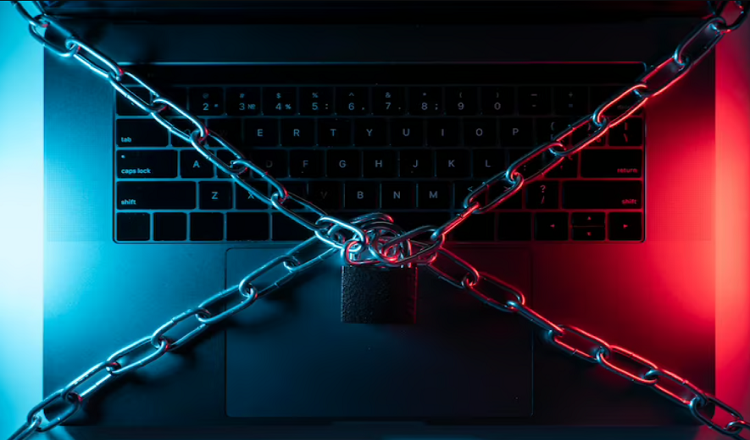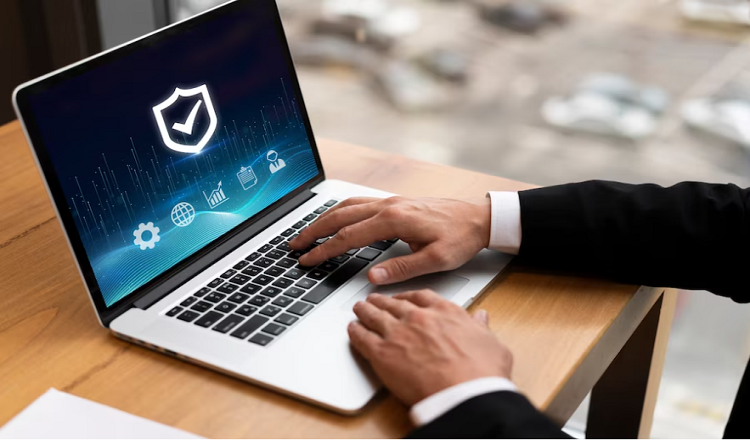The role of individuals, organizations, and the government in protecting USA against cyber attacks and safeguarding personal information
In today’s digital age, it’s nearly impossible to escape the ubiquitous presence of technology. We rely on it for work, communication, entertainment, and even shopping. However, with the increasing dependence on technology comes the risk of cyber attacks and the compromise of personal information. From phishing scams to data breaches, cyber threats have become a daily reality for individuals, organizations, and even governments.
In this blog, we’ll explore the vital role that individuals, organizations, and the government play in protecting against cyber attacks and safeguarding personal information. We’ll discuss the importance of personal responsibility, best practices for organizational cybersecurity, and government efforts to prevent cyber attacks. With the increasing frequency and sophistication of cyber attacks, it’s more important than ever to be informed about how to protect yourself and your information. So, grab your favorite device and let’s dive into the world of cybersecurity!
Individuals protect against cyber attacks
Individuals play a critical role in protecting against cyber attacks and safeguarding personal information. With cyber threats becoming more sophisticated and prevalent, it’s essential for individuals to take personal responsibility for their own cybersecurity. This includes staying informed about common cyber threats, such as phishing scams and malware, and implementing best practices to protect against them.
Effective password management, software updates, and safe browsing practices are just a few examples of strategies individuals can use to reduce their vulnerability to cyber attacks. Neglecting these measures can have serious consequences, as demonstrated by the many real-world examples of cyber attacks and data breaches that have impacted individuals and organizations alike. By taking personal responsibility for their own cybersecurity, individuals can help to protect themselves and contribute to the larger effort to prevent cyber attacks and safeguard personal information.
Organizations
Organizational cybersecurity is essential for protecting against cyber attacks and safeguarding personal information. Different types of organizations, from small businesses to large corporations and even government agencies, are at risk for cyber attacks due to their valuable data and financial resources. Cyber attackers often target vulnerable organizations to gain access to sensitive information or disrupt operations.
To protect against these threats, organizations should implement best practices such as employee training, data encryption, and incident response planning. By educating employees on safe browsing habits and the importance of strong passwords, organizations can reduce the risk of successful cyber attacks. In addition, implementing data encryption and developing an incident response plan can help organizations respond quickly and effectively to any potential threats. Real-world examples of data breaches and their negative impact on organizational reputation and financial stability emphasize the importance of strong cybersecurity measures for all types of organizations.
Government
The government plays a crucial role in protecting against cyber attacks and safeguarding personal information. Various government agencies, such as the Department of Homeland Security and the Federal Bureau of Investigation, are responsible for enforcing laws related to cybersecurity and responding to cyber threats. These agencies work together to monitor and detect potential cyber attacks, investigate data breaches, and enforce cybersecurity laws.
The government also has various initiatives aimed at promoting cybersecurity and preventing cyber attacks, such as the National Cybersecurity and Communications Integration Center (NCCIC). The NCCIC serves as a hub for sharing information and coordinating responses to cyber threats. Additionally, the government has responded to various cyber attacks with measures such as imposing sanctions and increasing funding for cybersecurity research and development. While the effectiveness of these measures may vary, the government’s role in protecting against cyber attacks and safeguarding personal information is critical in today’s digital landscape.
Collaboration for individuals, organizations, government
Collaboration among individuals, organizations, and government is crucial for protecting against cyber attacks and safeguarding personal information. Each group brings unique skills and resources to the table that can be leveraged to strengthen overall cybersecurity efforts. Successful collaborations between these groups have resulted in initiatives such as the National Cybersecurity Alliance, which promotes education and awareness about cybersecurity best practices.
However, there are also challenges in collaboration, such as differences in priorities and communication barriers. To overcome these challenges, strategies such as clear communication, mutual understanding, and a shared commitment to cybersecurity goals can be implemented. By working together, individuals, organizations, and government can create a stronger, more resilient cybersecurity ecosystem that benefits everyone.
The Future of Cybersecurity and Personal Information Protection
As technology continues to advance, so do emerging cybersecurity threats that pose challenges to personal information protection. Examples include social engineering attacks, ransomware, and advanced persistent threats. It is important to stay informed about these emerging threats to ensure effective personal information protection.
Fortunately, new technologies and techniques are constantly being developed to protect personal information and prevent cyber attacks. These include multi-factor authentication, biometric authentication, and artificial intelligence-driven threat detection. Additionally, continuous education and awareness are crucial to staying up-to-date on the latest cybersecurity trends and best practices. By remaining vigilant and leveraging the latest technologies and techniques, individuals, organizations, and government can continue to safeguard personal information and protect against cyber attacks in the future.
Conclusion
In conclusion, protecting against cyber attacks and safeguarding personal information is a shared responsibility among individuals, organizations, and the government. Each group has a crucial role to play in maintaining cybersecurity and preventing data breaches.
Individuals must take personal responsibility for their cybersecurity by practicing good password management, keeping software up to date, and being aware of common cyber threats. Organizations must prioritize cybersecurity by implementing best practices such as employee training, data encryption, and incident response planning. The government also has a responsibility to protect against cyber attacks and enforce laws that promote cybersecurity.
Collaboration among these groups is essential for effective cybersecurity. Examples of successful collaborations demonstrate the benefits of working together to achieve common goals.
As readers, we can take steps to protect our personal information and contribute to the larger effort to prevent cyber attacks. By staying informed, practicing good cybersecurity habits, and advocating for stronger cybersecurity measures, we can help create a safer and more secure online environment. Together, we can continue to strengthen cybersecurity efforts and protect against emerging threats.
Read More You May Like:














Post Comment